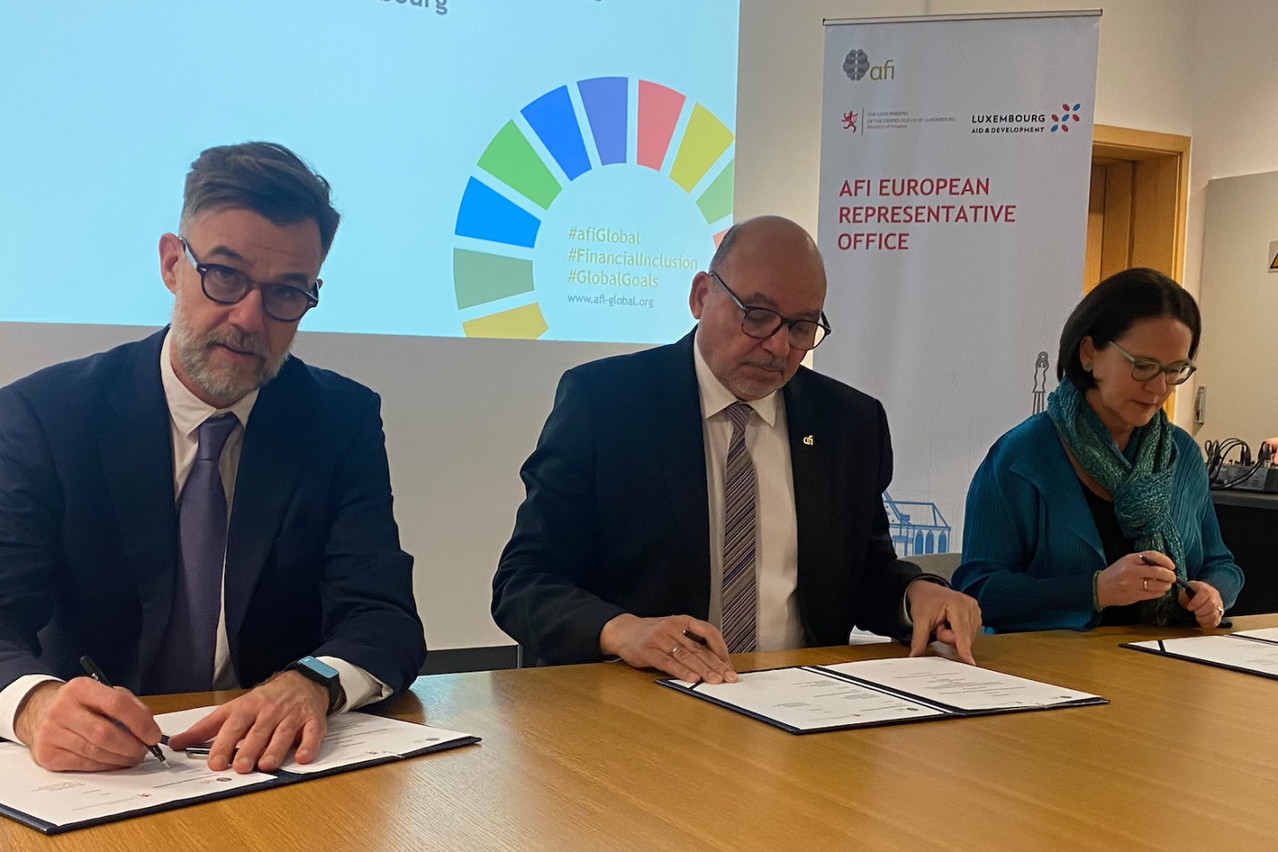Luxembourg’s finance minister (DP) and the minister for cooperation and humanitarian action (LSAP) renewed their agreement with the Alliance for Financial Inclusion on Monday .
In October 2020, the then ministers of finance, , and cooperation, Franz Fayot, handed over the keys to the new European office of the Alliance for Financial Inclusion to the then head of the AFI, Ilya Sverdlov. Two and a half years later, AFI executive director Alfred Hannig was physically present and no longer just behind his computer.
Inclusive finance and its benefits
This was an opportunity for Hannig to stress that inclusive finance is not an adjustment variable, nice when finances are good, useless when they are bad. “We must emphatically recall the benefits of inclusive finance,” Hannig told the 50 or so people who had come to the conference. Crisis mitigation, poverty reduction and support for economic growth and financial stability have been made possible by 920 policy and regulatory changes, in a context of sharing experiences and best practices, but also of developing fintech--with its Catapult: inclusion Africa programme, the Luxembourg House of Financial Technology is a leader in the global movement.
The two ministers came to reaffirm Luxembourg's commitment to work with the organisation in two agreements, “Ero” for “European representative office” and “MD-PIF” for “Multi-donor financial inclusion policy”, which includes not only the Luxembourg ministry of finance, but also the French development agency and the German federal ministry for economic cooperation and development.
Regulation as a competitive advantage
The two ministries have thus contributed €2m (€770,000 for finance and €1.2m for humanitarian aid), for the period from July 2023 to June 2026 and €400,000 for the first year of the MD-PIF by the ministry of finance. This is in addition to the €1m allocated in January to Costa Rica for the project to develop financial inclusion strategies and promote knowledge sharing in this area in Latin America and the Caribbean by ministry of finance.
“Financial inclusion is a great tool,” Fayot said, adding that after closely following the financial debacle of Kaupthing Bank Luxembourg from October 2008 to July 2009--he was co-judicial administrator--and watching the Netflix report on Wirecard, he was increasingly convinced that smart regulation was needed and adapted to all contexts. “Smart regulation is a clear advantage,” Backes echoed. “Clear guidelines give confidence” and stability to the financial world.
“We are very much aligned,” said Hannig, who has long advocated about the virtues of financial inclusion.
This story was first published in French on . It has been translated and edited for Delano.
